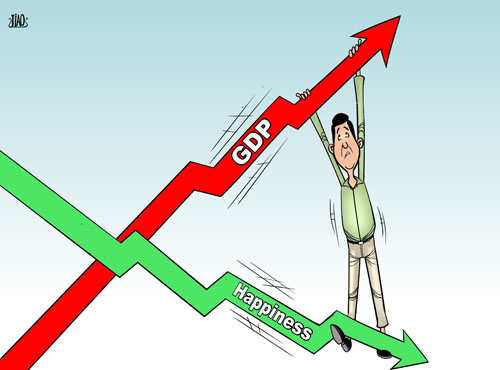How rich are we?

What a curious China we are living in. It is truly a perfect time for scholars to study the modern political economy of China. But we Chinese economists are often puzzled by the uniqueness of China's economic development: Low interest rates and high inflation coexist with an appreciating renminbi. Double-digit inflation in food prices doesn't seem to bother the general public as it did in the late 1980s. Housing prices continue to rise despite government cool-down measures. And despite warnings from insiders and outsiders alike, China's economy is performing pretty well overall while the rest of the world still appears to be suffering from the economic and financial crisis.
To many people, China is rich. China is rich in labor resources. It is rich in local policies that give tremendous preferential treatments to foreign investors. It is rich in excess foreign exchange reserves. The typical Chinese citizen has no concept of what the huge excess foreign reserves and the associated holdings of vast amounts of US bonds mean to them or what will be the future outcome of all this wealth. Nevertheless, most knowledgeable people would agree that $2.7 trillion in foreign reserves is quite amazing in today's world.
Meanwhile, the number of wealthy households in China continues to rise. According to McKinsey's prediction, China will have the world's fourth-largest concentration of wealthy people by 2015. For many international companies, China is the ideal location for growing their businesses. Thus, by most accounts, China gives the impression of being a pretty rich nation.
But my students, at both the graduate and undergraduate levels, seem less than excited when talking about how rich China is. The reasons are simple. Most of them are from rural families, and in the very near future, they will have to face two unmerciful realities: a fiercely competitive domestic job market and an expensive housing market.
 0
0 






